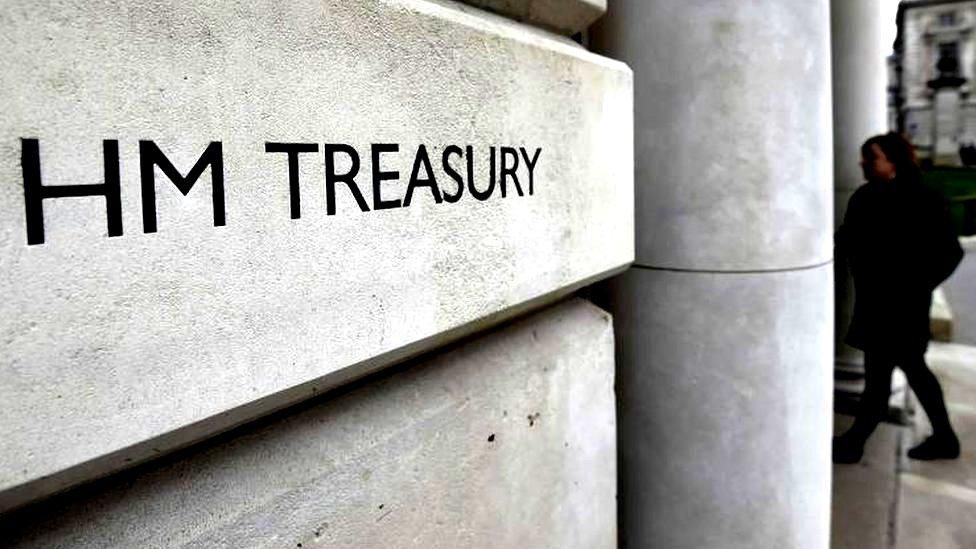Welsh MPs feel 'second-class' over English-only Commons vote
- Published
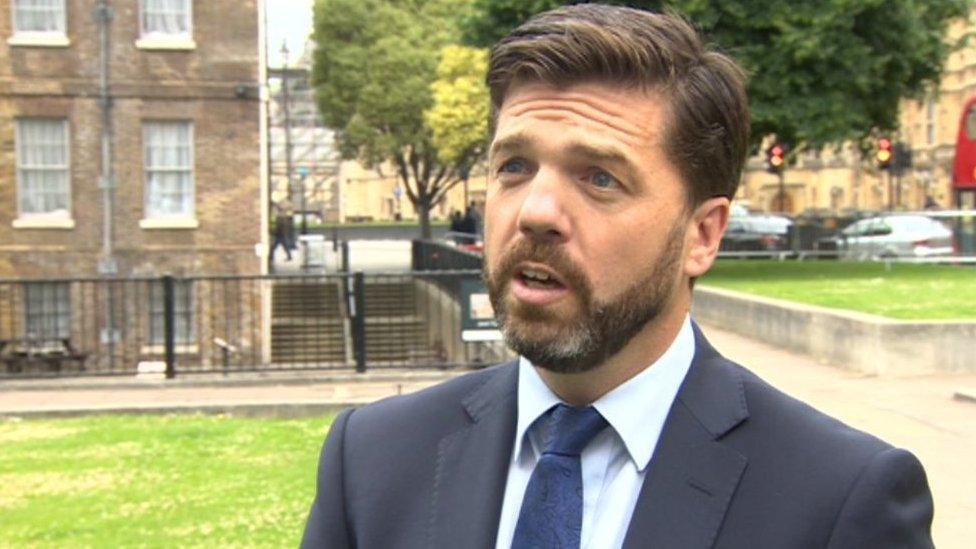
Former Welsh Secretary Stephen Crabb said current devolution rules were "weak"
English votes for English laws makes Welsh MPs feel like "second-class" politicians, a former Welsh Secretary has said.
Stephen Crabb said excluding MPs from Wales, Scotland and Northern Ireland from certain votes had not "done anything" to strengthen the UK.
Plaid Cymru and the Scottish National Party protested after they were blocked from voting on an "English-only" NHS bill.
Mr Crabb said the rule was "bizarre".
The English votes for English laws convention was introduced in Parliament following the Scottish independence referendum in 2014.
It means politicians from devolved nations, Wales, Scotland and Northern Ireland, are not allowed to vote on proposed legislation thought to apply only to constituencies in England.
On Tuesday, Plaid Cymru MPs and SNP MEPs were accused of a parliamentary "stunt" after they were blocked from voting on an "English-only" bill about the NHS.
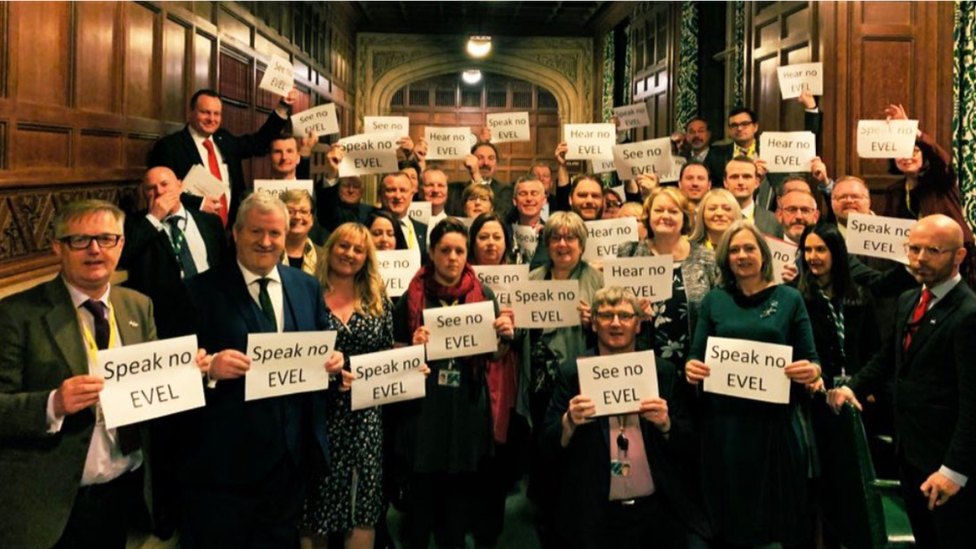
Plaid and SNP politicians staged a protest inside the House of Commons after not being allowed to vote
They protested as they argued that due to funding formulas, any decision on the health service in England would ultimately have financial implications for the devolved nations.
While health is devolved in Wales, any cuts or increases for the English NHS, will lead to more or less money being allocated to the Welsh Government to be spent here under the Barnett Formula.
Conservative MP for Preseli Pembrokeshire Mr Crabb said that the whole convention was damaging to the United Kingdom.
Mr Crabb, who was Welsh Secretary until 2016, said it was "bizarre", and one of the "least useful constitutional things that's happened".
"It makes Welsh, Northern Irish and Scottish MPs feel at times like they are almost second-class MPs," he told the BBC's Politics Wales programme.
"It hasn't really strengthened the glue that holds the United Kingdom together."
"It was a constitutional and parliamentary innovation that, in my view, has done very little," he added.
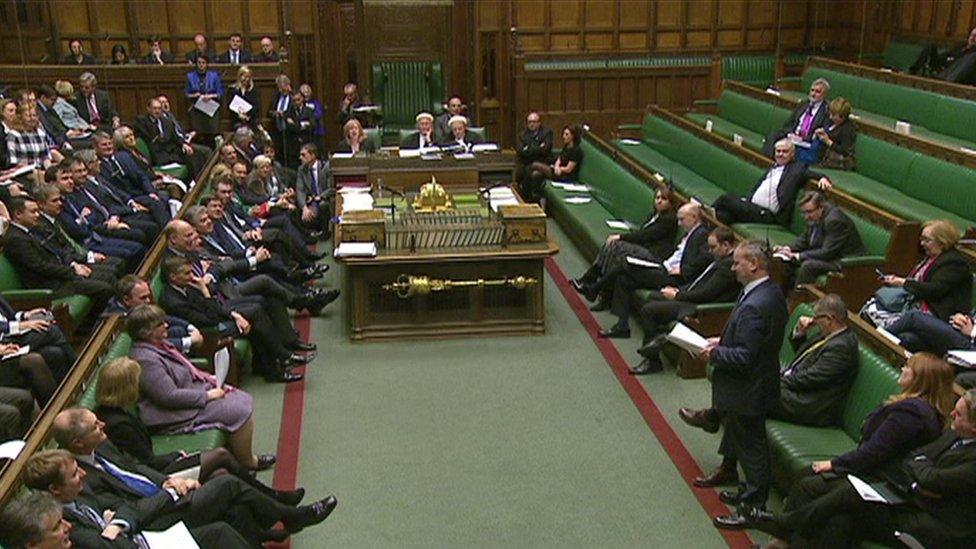
English votes for English laws was first used in 2016 for the Housing and Planning Bill
Following the Scottish independence vote, the Conservative UK government, passed a law in 2017 that changed the powers of the Welsh Assembly.
But Mr Crabb said he now thought that devolution arrangements were "pretty weak, and unsatisfactory".
"What is the answer? Nobody can quite put their finger on that just yet. So the danger is that we just muddle along, because there isn't a clear solution," he added.
A YouGov opinion poll for Cardiff University and ITV Wales published earlier in the week suggested relatively similar levels of support for abolishing the Welsh Assembly and independence for Wales, external.
Mr Crabb said that it suggested there was "discontent at the current state of affairs, constitutionally and economically as well".
"When the numbers go up for full abolition of devolution, it doesn't quite get the political attention, and if I were a decision maker in the Senedd, if I was part of Welsh Government, I'd be very nervous about those figures because that's a dangerous signal for devolution," he added.
Politics Wales is on BBC One Wales at 10:00 GMT on Sunday, 9 February
- Published4 February 2020
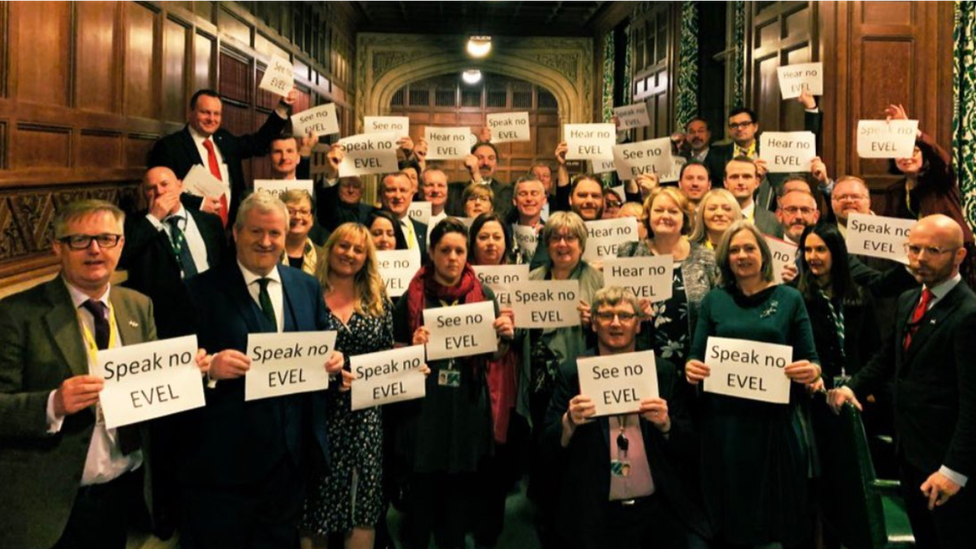
- Published26 July 2019
